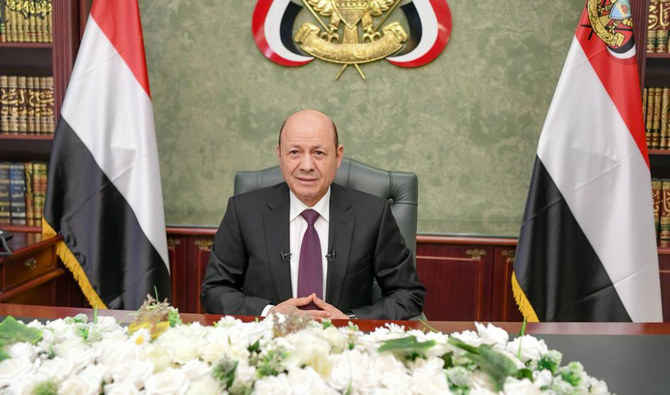JEDDAH: The second round of prisoner swap talks between the Yemeni government and the Houthis, which was scheduled to begin this month, has been postponed after both parties traded accusations over prison visit delays.
During the first round of prisoner swap talks in Switzerland in March, the Yemeni government and the Houthis agreed to swap almost 900 prisoners during the holy month of Ramadan, as well as exchange visits to prisoners in each other’s cities, and launch the second round of talks immediately after Ramadan, which ended on April 21.
Both parties this week accused one another of impeding prison visits.
Majed Fadhail, a member of the government’s delegation to prisoner exchange negotiations, told Arab News that the Yemeni government delegation postponed a visit to Houthi prisons after the militia refused to allow them to visit Mohammed Qahtan, a Yemeni politician held captive for eight years.
“The agreement stipulates that everyone, including Mohammed Qahtan, is permitted to visit,” Fadhail said.
Yahya Kazman, head of the Yemeni government’s delegation, also told Arab News that the second round of talks was scheduled to begin at the end of this month but was delayed because the agreement to swap visits to Marib and Sanaa prisons failed to be put into practice.
“I anticipate that it will be delayed until mid-June, as it is dependent on visits that have not yet been implemented,” Kazman said.
In Sanaa, the Houthis accused the Yemeni government of setting preconditions on their Saturday trip to prisoners in Marib.
“We view these actions as a blatant obstruction designed to thwart the visits and, in turn, the next round of negotiations,” Abdul Kader Al-Murtadha, head of the Houthi delegation, said on Twitter.
During the second round of talks, the Houthis say they will discuss exchanging 1,400 prisoners, while the Yemeni government says it will push for “emptying” Houthi prisons of abductees and forcefully disappeared persons.
Similarly, Yemen rights groups and activists that work for the release of war prisoners and abducted civilians voiced dissatisfaction with the postponement of prisoner swap discussions between the warring factions and urged the UN Yemen envoy, Hans Grundberg, and the Arab coalition, to push for the talks to resume as soon as possible.
“We hold them accountable for their inaction, accusations and procrastination. Mothers are extremely distressed and monitor this case with great interest,” Amat Al-Salam Al-Hajj, chairperson of the Abductees’ Mothers Association, an umbrella group representing thousands of women family members of civilian war captives, told Arab News.
The prisoner swap talks were postponed as the head of the Presidential Leadership Council, Rashad Al-Alimi, warned wrangling Yemeni political parties in Yemen that the collapse of the council, the government, and other public institutions would deprive the war-torn country of vital humanitarian aid and prevent Yemenis from traveling abroad.
“The presence of the legitimate authority, which is represented by the Presidential Leadership Council, the government and modern national institutions, is the decisive guarantee for the continuation of political support for our just causes, the flow of aid and the facilitation of the cross-border movement of Yemenis,” Al-Alimi said in a speech on the eve of the 33rd anniversary of Unity Day on May 22.
He urged Yemenis to support the council until the Houthis are defeated and Iran’s schemes in Yemen are foiled.
“Our ultimate objective will continue to be to restore state institutions, and we will continue to unite the inside and outside of the country against the Houthi militia’s coup and terrorism, as well as the Iranian project that supports it,” he added.
The Yemeni government would comply with peace efforts to end the war in Yemen, including the Saudi initiative, as well as revive state institutions and alleviate the country’s worsening humanitarian crisis, Al-Alimi said.
“We will also continue our serious engagement with the peace efforts led by our brothers in the Kingdom of Saudi Arabia, along with the option to deter any hostile threat posed by the Houthi militia.”




























